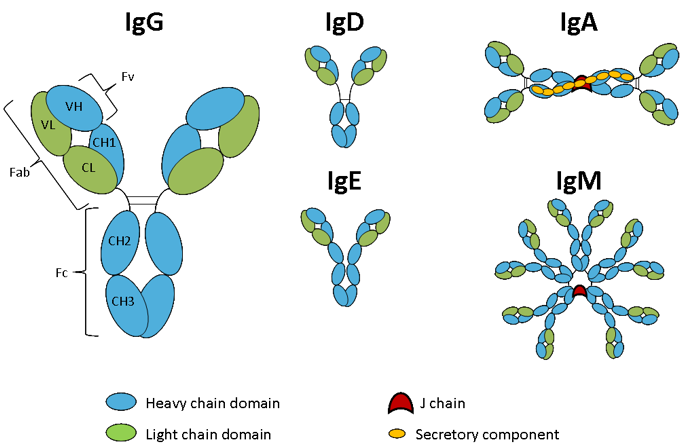Home » Posts tagged 'custom antibody'
Tag Archives: custom antibody
All About Polyclonal And Monoclonal Antibodies
Both monoclonal and polyclonal antibodies can be used in a variety of different applications, including Western blot, ELISA, immunoprecipitation, immunofluorescence and immunohistochemistry. Each method has advantages and disadvantages to consider when selecting your antibody.
Polyclonal antibodies are usually produced in rabbits, goats, chickens or mice after activation of multiple B cell clones. To know more about polyclonal and monoclonal antibody, you can also browse https://www.bosterbio.com/featured-products. Therefore, polyclonal immune serums contain a group of antibodies with different chemical and physical properties that recognize multiple epitopes of the immunized antigen.
Advantages of polyclonal antibodies:

Image Source: Google
Since antibodies bind to different protein epitopes, proteins that are expressed in small amounts can be more easily detected because the signal is amplified.
Antibodies are more tolerant of minor changes in the nature of the antigen, such as polymerization or mild denaturation.
General considerations for polyclonal antibodies:
• Preferably, when the type of protein is unknown
• Preferred choice for detecting denatured proteins
• Variability from batch to batch between different animals
Detect proteins with high homology. To ensure specificity, the antigenic sequence should be checked for significant cross-reactivity
The immune response in animals immunized with the same antigen will vary individually. Therefore, the general recommendation for the production of polyclonal antibodies is immunization of at least two animals with the antigen.
Monoclonal antibodies are usually produced by single B cells from immunized BalbC mice. Fusion of B cells and myeloma cells creates a hybridoma cell line that produces antibodies that recognize a single epitope with low cross-reactivity.
Advantages of monoclonal antibodies:
• Usually low cross-reactivity
• Facilitate standardization in manufacturing processes, such as: B. Clinical diagnostic and treatment kits
General considerations for monoclonal antibodies:
• Can produce an unlimited number of specific antibodies
• High homogeneity
• Preferably for protein detection in tissue
• Preferably for analysis requiring quantitative assessment
Antibody Classes Or Isotypes And Functions
IgG antibodies are the most common and the most important. They circulate in the blood and other body fluids, defending against invading bacteria and viruses. The binding of IgG antibodies with bacterial or viral antigens activates other immune cells that engulf and destroy the antigens.
As the smallest antibody, IgG moves easily through cell membranes. IgM is present in the blood and is the largest antibody combining five Y-shaped units. It acts similarly to IgG in protecting against antigens, but because of its size, it cannot cross membranes. To know more about antibodies, you can also browse https://www.bosterbio.com/featured-products.
IgM is the main antibody produced in the first attack by a specific bacterial or viral antigen, whereas IgG is usually produced in subsequent infections caused by the same pathogen.

Image Source: Google
IgA antibodies are found in tears, saliva, and mucus, as well as in secretions from the respiratory, reproductive, gastrointestinal, and urinary tracts. IgA neutralizes bacteria and viruses and prevents them from entering the body or reaching internal organs.
IgE is only found in mammals. IgE is the least common isotype and is synthesized by plasma cells. IgE also plays an important role in type I hypersensitivity, which manifests itself in various allergic diseases such as allergic asthma, food allergies, certain forms of chronic urticaria, and atopic dermatitis. IgE also plays a role in allergen reactions.
IgD is present in species from cartilaginous fish to humans. The function of IgD is to signal the activation of B cells. When activated, the cells are ready to protect the body. During B cell differentiation, IgM is the exclusive isotype expressed by immature B cells.
IgD begins to express when B cells leave the bone marrow to colonize peripheral lymphoid tissue. Mature B cells co-express IgM and IgD. IgD may play a role in allergic reactions. IgD can also bind to basophils and mast cells and activate these cells to produce antimicrobial factors involved in respiratory immune protection in humans.
